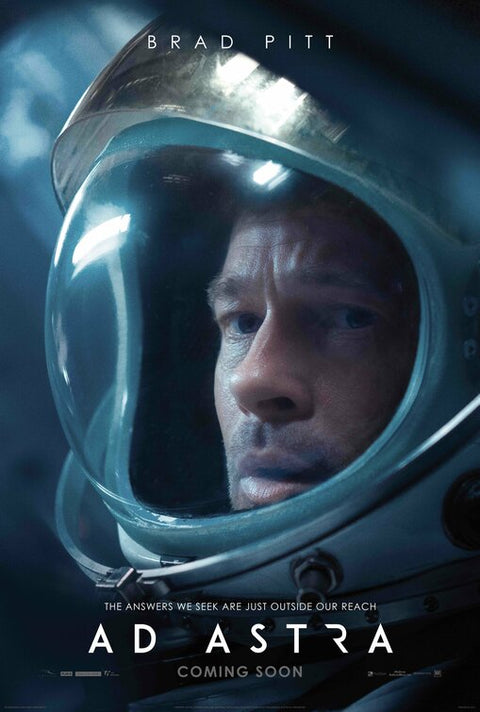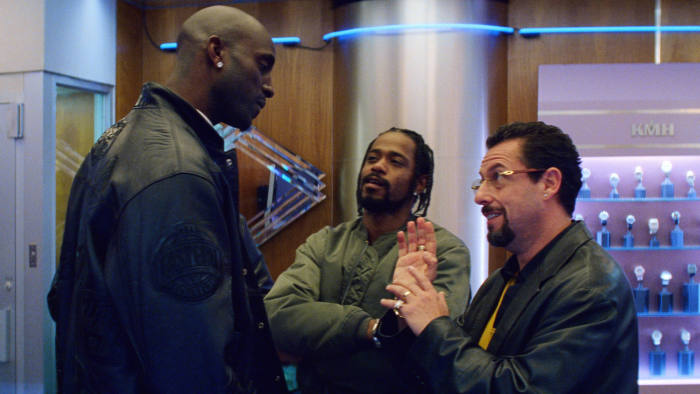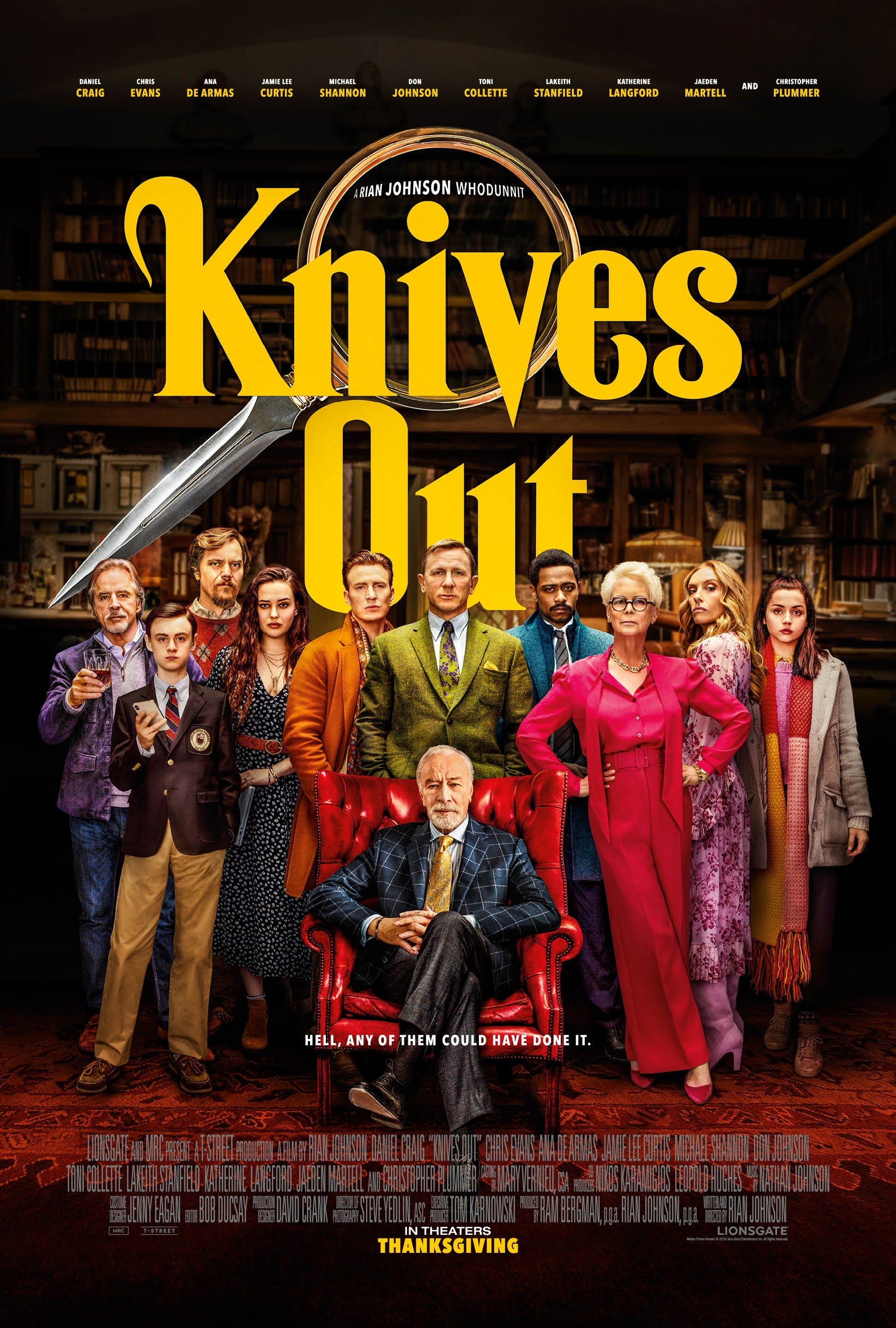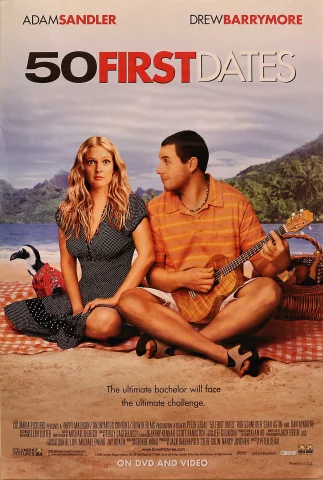Spoilers ahead (it's mostly historical record, though).
Director: Martin Scorsese
It's a mammoth of a gangster movie by arguably the greatest director of such films, and it is among his very best.
If you only know a few of Scorsese's rather large and impressive filmography, chances are that Goodfellas and Casino are two of them. They both offered dramatic re-tellings of real-life events in the world of organized crime. In Goodfellas, we saw the rise and fall of Henry Hill, a street-level soldier for the Italian mafia in New York who, after living the criminal life from the 1960s to the early 1980s, turned state's evidence and testified against his former colleagues and bosses. Casino followed the closely intertwined lives of Sam "Ace" Rothstein and Nicky Santoro, who both served to help the mafia carve out a solid niche in Las Vegas during the 1970s. Both movies offered us a view of the rises and falls of the more violent, influential mafia figures, but seen from the perspective of guys - Hill and Rothstein - who were just far enough away from the truly violent and powerful that they avoided complete disaster.
The Irishman follows a very similar blueprint, for most of the way. Scorsese mainstay Robert DeNiro plays Frank Sheeran, an Irish-American truck driver and World War II veteran who eases his way into working for the Italian mafia during the 1950s. Through a chance encounter with Russell Bufalino (Joe Pesci), a high-ranking mafia boss, Sheeran soon works his way into becoming a reliable hitman. Despite being a foot solider, he builds a great deal of trust with Bufalino, who eventually introduces him to Teamsters Union president Jimmy Hoffa (Al Pacino). At this point in history, the mid-1950s, Jimmy Hoffa was about as famous a figure as there was in the United States. A hard-nosed and charismatic people's man, Hoffa was never above a little strong-arming and bribery to accomplish his goals, which were often to the benefit of himself as much as the Teamsters. Sheeran and Hoffa strike up a friendship, with Sheeran becoming Hoffa's bodyguard and occasional confidante for a number of years.
In the succeeding decades, Hoffa's star famously falls, starts to rise again, and then completely disappears under famously mysterious circumstances. The Irishman, however, offers an answer to the mystery - that a highly conflicted Sheeran played a role in sabotaging and assassinating Hoffa after he refused to take marching orders from the powerful mafia figures with whom he had previously worked. After Hoffa's death, Sheeran himself remains connected to Bufalino in both professional and friendship capacities. Eventually, though, Bufalino and all of Sheeran's human connections to the mafia and Hoffa pass away, leaving him the last one alive to recount his tale a few decades later.
The epic scope and the sordid nature of organized crime dealings prevalent in The Irishman will feel very familiar to anyone who knows Scorsese's mafia flicks. Some low-rent, morally dubious dude is lured in by the money, and gets a front row seat to some pretty dastardly business, all set to a great soundtrack. But The Irishman does offer something more. Sure, the thugy killings and beatdowns are there. Yes, the hilarious exchanges between not-so-smart guys trying to sound smart are there. But what elevates this movie above even Scorsese's past mafia masterpieces is the final analysis of Sheeran. In the much quieter final 30-or-so minutes of the movie, we see Frank Sheeran reckoning with the cost of his loyalty to Bufalino, Hoffa, and forces far more powerful, personal, and spirit-crushing than he ever quite realized. It all leaves a much deeper impact than Scorsese's earlier mob movies, not unlike how Clint Eastwood's Unforgiven left an indelible final stamp on his own career in Western movies.
It feels a bit silly to nitpick over such a well-crafted movie, but there were a few things that I couldn't help but notice. Mainly, the fact that DeNiro and Pesci, both 76 years old, are playing characters over a span of four to five decades. Rather than find younger "look-similars," Scorsese had the late-septuagenarians play their own late-30/early-40 year old selves in the earlier flashbacks of the tale. And no amount of makeup and costume ingenuity could cover all of that up, making few of the scenes from the earlier times a tad distracting.
That little gripe aside, it's an excellent movie. The length and relatively somber final act may prevent me from firing it up again anytime soon, but I'll certainly see it again in the future.
Director: Martin Scorsese
It's a mammoth of a gangster movie by arguably the greatest director of such films, and it is among his very best.
If you only know a few of Scorsese's rather large and impressive filmography, chances are that Goodfellas and Casino are two of them. They both offered dramatic re-tellings of real-life events in the world of organized crime. In Goodfellas, we saw the rise and fall of Henry Hill, a street-level soldier for the Italian mafia in New York who, after living the criminal life from the 1960s to the early 1980s, turned state's evidence and testified against his former colleagues and bosses. Casino followed the closely intertwined lives of Sam "Ace" Rothstein and Nicky Santoro, who both served to help the mafia carve out a solid niche in Las Vegas during the 1970s. Both movies offered us a view of the rises and falls of the more violent, influential mafia figures, but seen from the perspective of guys - Hill and Rothstein - who were just far enough away from the truly violent and powerful that they avoided complete disaster.
The Irishman follows a very similar blueprint, for most of the way. Scorsese mainstay Robert DeNiro plays Frank Sheeran, an Irish-American truck driver and World War II veteran who eases his way into working for the Italian mafia during the 1950s. Through a chance encounter with Russell Bufalino (Joe Pesci), a high-ranking mafia boss, Sheeran soon works his way into becoming a reliable hitman. Despite being a foot solider, he builds a great deal of trust with Bufalino, who eventually introduces him to Teamsters Union president Jimmy Hoffa (Al Pacino). At this point in history, the mid-1950s, Jimmy Hoffa was about as famous a figure as there was in the United States. A hard-nosed and charismatic people's man, Hoffa was never above a little strong-arming and bribery to accomplish his goals, which were often to the benefit of himself as much as the Teamsters. Sheeran and Hoffa strike up a friendship, with Sheeran becoming Hoffa's bodyguard and occasional confidante for a number of years.
In the succeeding decades, Hoffa's star famously falls, starts to rise again, and then completely disappears under famously mysterious circumstances. The Irishman, however, offers an answer to the mystery - that a highly conflicted Sheeran played a role in sabotaging and assassinating Hoffa after he refused to take marching orders from the powerful mafia figures with whom he had previously worked. After Hoffa's death, Sheeran himself remains connected to Bufalino in both professional and friendship capacities. Eventually, though, Bufalino and all of Sheeran's human connections to the mafia and Hoffa pass away, leaving him the last one alive to recount his tale a few decades later.
The epic scope and the sordid nature of organized crime dealings prevalent in The Irishman will feel very familiar to anyone who knows Scorsese's mafia flicks. Some low-rent, morally dubious dude is lured in by the money, and gets a front row seat to some pretty dastardly business, all set to a great soundtrack. But The Irishman does offer something more. Sure, the thugy killings and beatdowns are there. Yes, the hilarious exchanges between not-so-smart guys trying to sound smart are there. But what elevates this movie above even Scorsese's past mafia masterpieces is the final analysis of Sheeran. In the much quieter final 30-or-so minutes of the movie, we see Frank Sheeran reckoning with the cost of his loyalty to Bufalino, Hoffa, and forces far more powerful, personal, and spirit-crushing than he ever quite realized. It all leaves a much deeper impact than Scorsese's earlier mob movies, not unlike how Clint Eastwood's Unforgiven left an indelible final stamp on his own career in Western movies.
It feels a bit silly to nitpick over such a well-crafted movie, but there were a few things that I couldn't help but notice. Mainly, the fact that DeNiro and Pesci, both 76 years old, are playing characters over a span of four to five decades. Rather than find younger "look-similars," Scorsese had the late-septuagenarians play their own late-30/early-40 year old selves in the earlier flashbacks of the tale. And no amount of makeup and costume ingenuity could cover all of that up, making few of the scenes from the earlier times a tad distracting.
That little gripe aside, it's an excellent movie. The length and relatively somber final act may prevent me from firing it up again anytime soon, but I'll certainly see it again in the future.
















